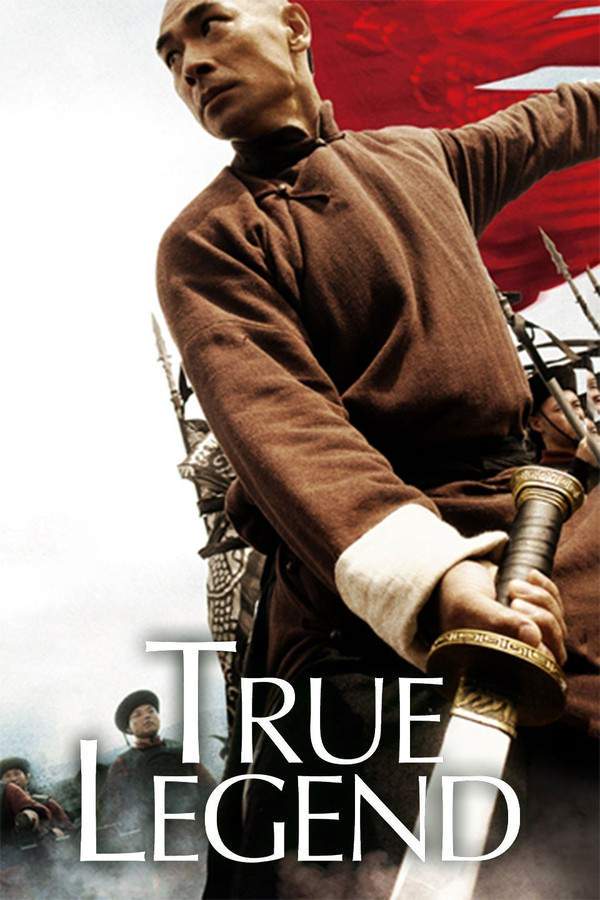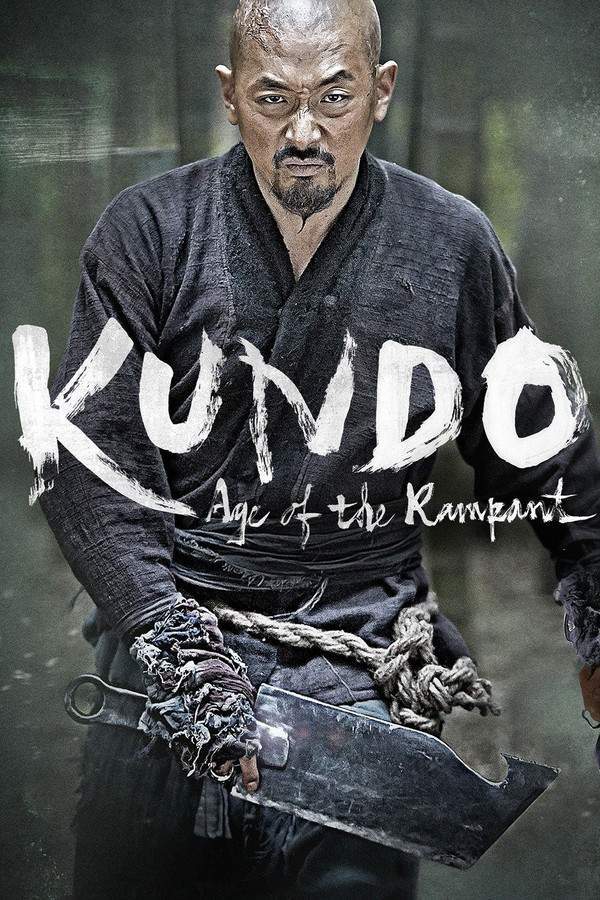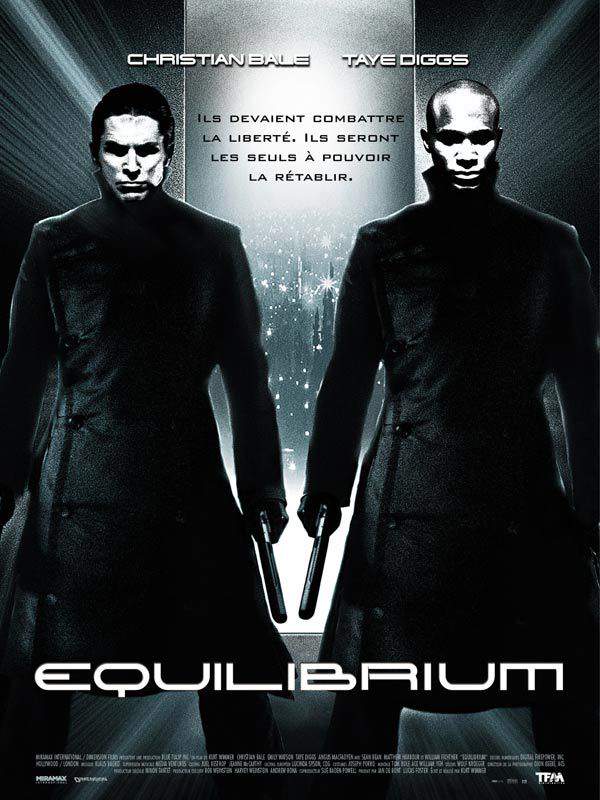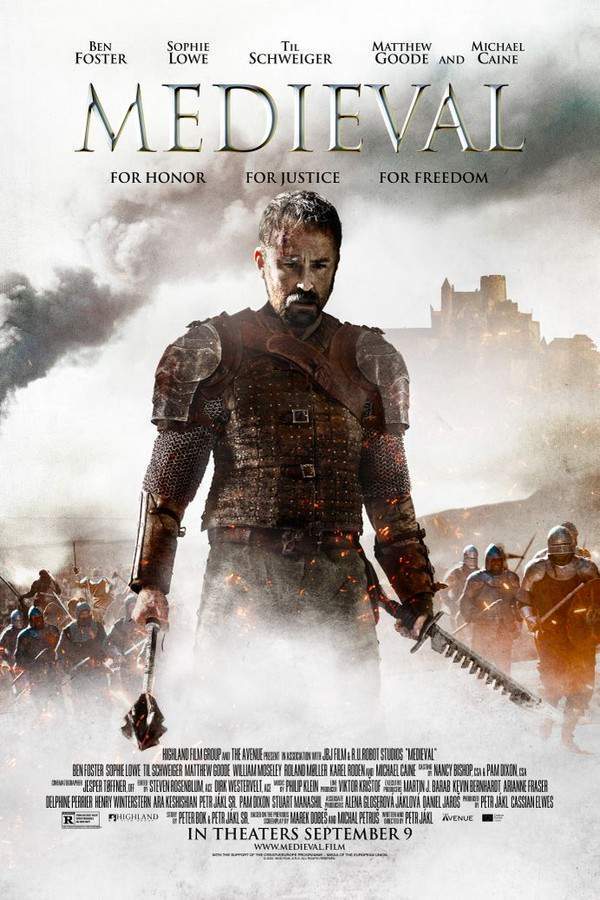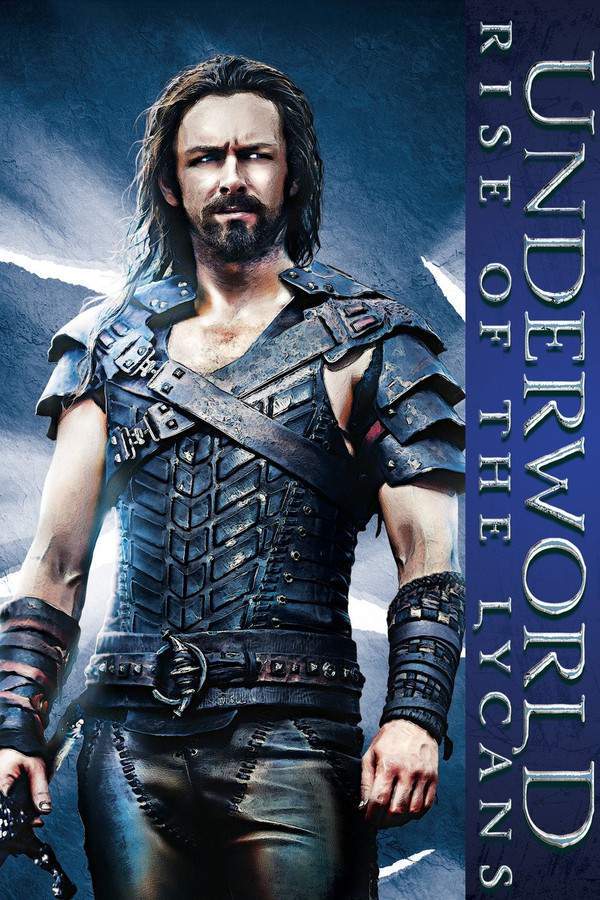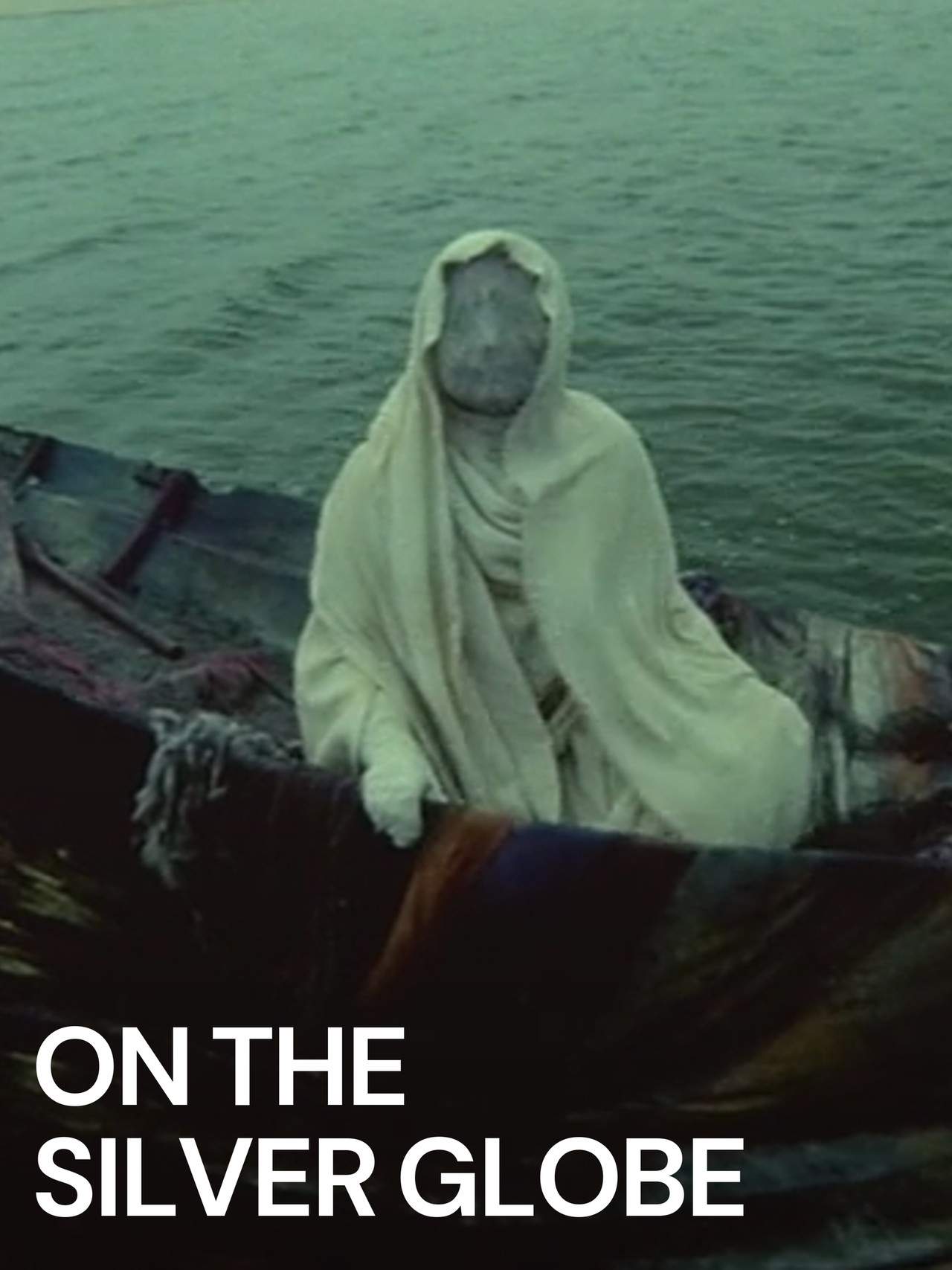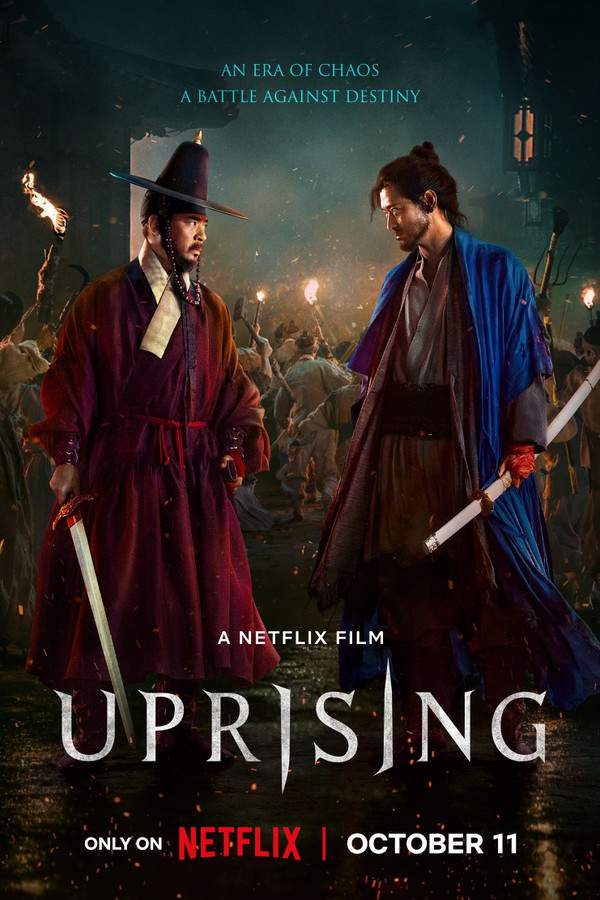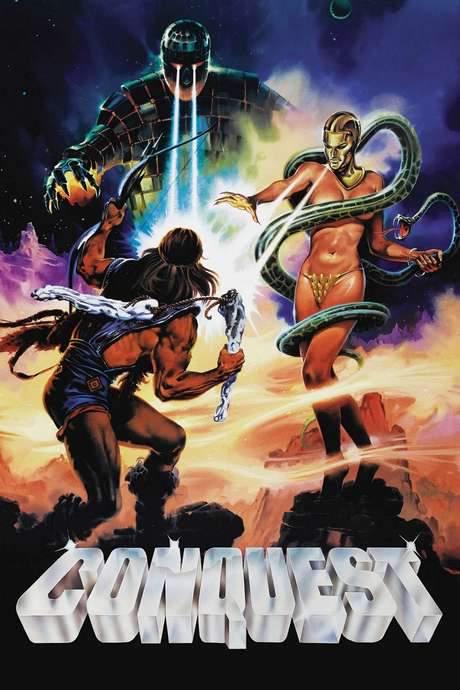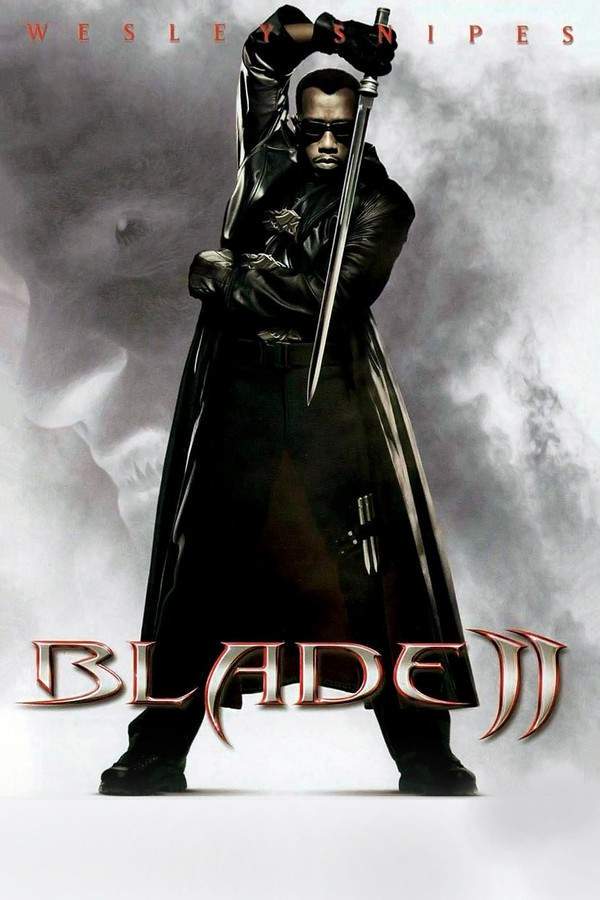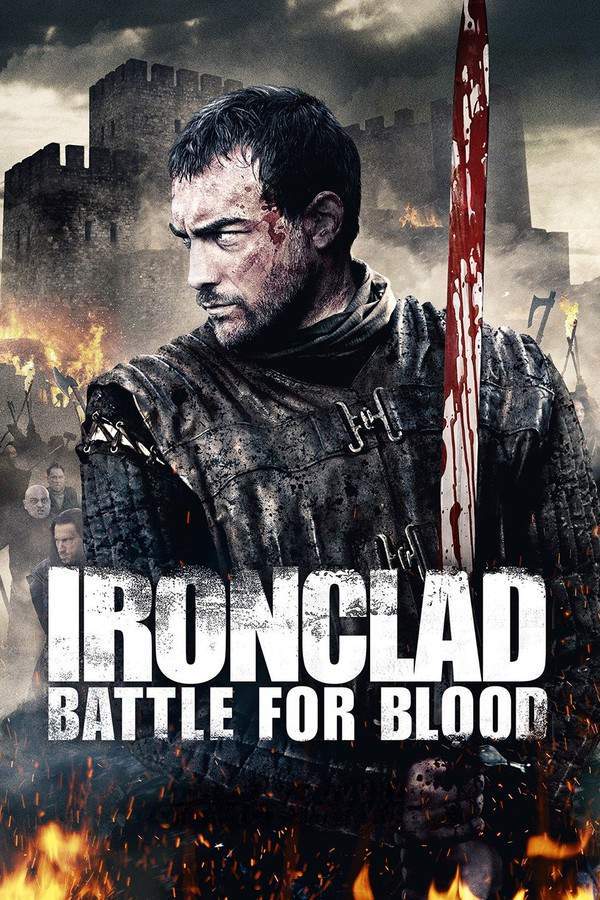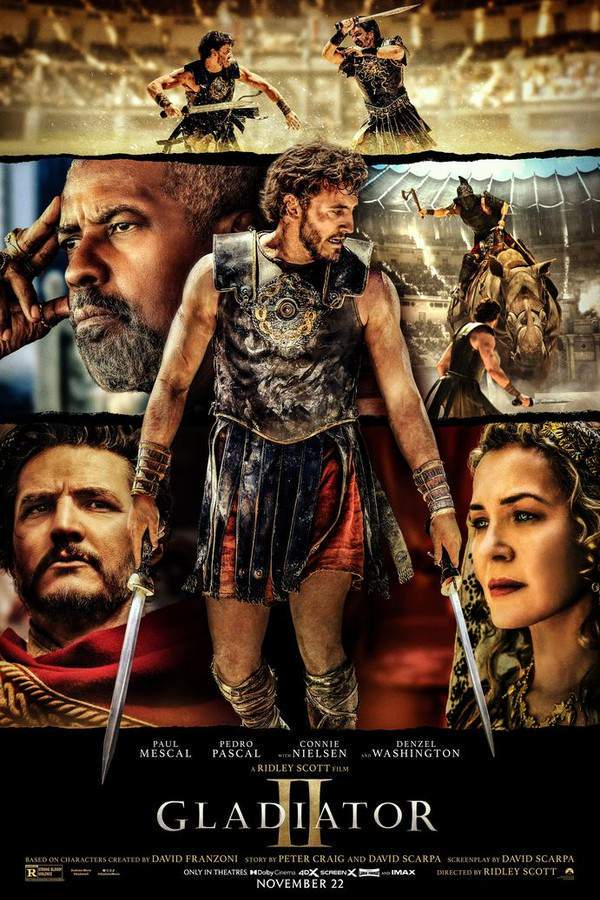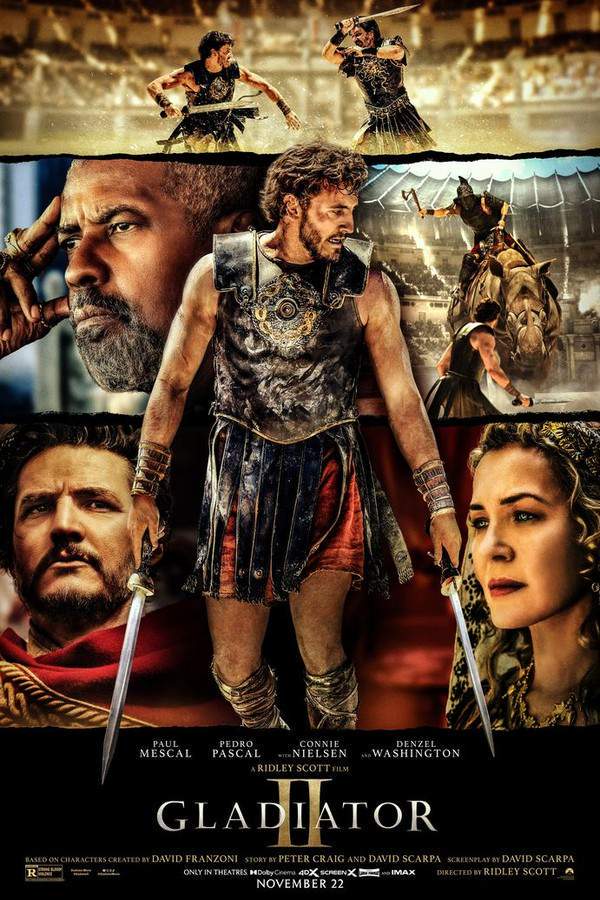
Gladiator II
Years after the death of Maximus, Lucius is forced into the Colosseum after his home is conquered by tyrannical Emperors ruling Rome with an iron fist. Driven by rage and with the future of the Empire hanging in the balance, he must confront his past to find strength and fight for freedom.
Warning: spoilers below!
Haven’t seen Gladiator II yet? This summary contains major spoilers. Bookmark the page, watch the movie, and come back for the full breakdown. If you're ready, scroll on and relive the story!
Gladiator II (2024) – Full Plot Summary & Ending Explained
Read the complete plot breakdown of Gladiator II (2024), including all key story events, major twists, and the ending explained in detail. Discover what really happened—and what it all means.
Sixteen years after the death of Marcus Aurelius, Rome is under the iron grip of the corrupt twin emperors, Geta and Caracalla. During this tumultuous period, Aurelius’s grandson, Lucius Verus Aurelius, has taken on the identity of “Hanno” and is living with his wife, Arishat, in the far-off lands of Numidia. However, their lives are upended when General Acacius leads a ruthless Roman army that invades, conquering their city, enslaving Lucius, and ultimately causing the tragic death of Arishat.
In a grim demonstration of power, the Romans force the captured slaves to fight feral baboons as a spectacle, a ruthless initiation into the life of a gladiator. In this brutal arena, Lucius showcases his ferocity and strength by killing a baboon, catching the attention of the stable master, Macrinus, who makes a promise: if Lucius can win enough fights, he will have the chance to avenge the death of his wife by killing Acacius.
As Acacius returns to Rome, celebrated as a war hero, Geta and Caracalla organize grand gladiatorial games in the renowned Colosseum to honor him. Despite his desire for peace and a break from the relentless bloodshed, Acacius is left with no choice but to put aside personal respite as the emperors delve into their ambitions of conquest in Persia and India. During a festivity orchestrated by Senator Thraex, gladiators are offered as entertainment, resulting in an exhilarating duel that further amplifies Lucius’s notoriety. When queried by Geta about his origins, Lucius delivers a scathing recitation of Virgil’s work, showcasing his Roman schooling and intellect.
As Lucius regains strength and determination within the Colosseum, he mirrors the grandeur of the legendary gladiator Maximus, whom he idolizes. It is during one of these fierce bouts that Lucilla spots him; she recognizes her own son, whom she had sent away as a child, desperate to protect him from the political shadows cast by enemies of the throne. In a dramatic naval reenactment within the Colosseum, Lucius leads his team to victory and attempts a significant strike against Acacius, though tragically, he fails to take his shot.
When Lucilla approaches Lucius, a tumult of emotions arises. He feels betrayed, having been forced into exile while his mother lived in opulence, and she represents the very reality he sought to escape from. The bitterness deepens when he discovers that her new relationship inadvertently led to Arishat’s demise. During this dark chapter, Lucius learns of Ravi, the gladiators’ compassionate doctor, who reveals a past entwined with slavery and freedom, showing Lucius a shrine dedicated to Maximus—a testament to hope and resilience.
Meanwhile, Lucilla and Acacius, in a bid to reclaim power, collude with Thraex and Gracchus to plot against the twin emperors and restore the Roman Republic. Acacius vows to rescue Lucius from his chains, yet treachery pervades as Thraex, indebted to Macrinus, betrays their plans, tipping him off. Macrinus, hungry for revenge against Rome for his past grievances, manipulates events to his favor, culminating in a harrowing decision where he instructs Lucius to kill Acacius during a gladiatorial match.
In a moment of conflict, Lucius hesitates, unwilling to slay Acacius, resulting in the Praetorian Guard executing him under the emperors’ orders, which incites chaos among the populace. As riots erupt throughout Rome, Macrinus confronts Lucius about his defiance. Lucius argues passionately for a better Rome, advocating for change, but Macrinus disagrees vehemently. He seizes the moment to confront Lucilla in her imprisonment, revealing his past as a slave under Marcus Aurelius’s rule, and declaring his intent to dismantle the imperial dynasty.
As intrigues deepen, Macrinus orchestrates the downfall of Caracalla, leading to deadly consequences. The spectacle grows grim as Lucilla becomes a pawn in Macrinus’s vicious game, where only Lucius stands to defend her against a horde determined to execute her. In this crucible, Lucius and Lucilla find solidarity, and she reveals a shocking truth: he is the son of Maximus, bequeathing him her father’s ring, which bears the weight of their legacy and hope.
In a heady twist of fate, Lucius sends Ravi with the ring to align with Acacius’s forces outside Rome. As Lucilla faces mounting dangers within the Colosseum, armed with Maximus’s sword and armor, Lucius rallies fellow gladiators for a rebellion against their captors. The battle seeps through the arena, claiming Gracchus’s life and leaving Lucilla mortally wounded at the hands of Macrinus, who escapes from the chaos.
Outside of Rome, the forces of Acacius and Macrinus converge, leading to a climactic duel between Lucius and Macrinus—a struggle with Lucius on the brink of death. Yet, in a moment of transcendence, the voice of his mother rings in his ears, igniting a burning passion within him that propels him to victory. Lucius seizes control, revealing his true identity as the heir to the empire, and rallies both armies with a vision of unity and progress.
In the aftermath, Lucius stands mournfully in the Colosseum, reflecting on his parents and the legacy of a tumultuous reign, embodying a bridge between the past and an uncertain future for Rome.
Last Updated: December 13, 2024 at 06:47
Ending Explained – What Happens at the End of Gladiator II?
Still wondering what the ending of Gladiator II (2024) really means? Here’s a spoiler-heavy breakdown of the final scene, major twists, and the deeper themes that shape the film’s conclusion.
At the end of Gladiator II, Lucius Verus finds himself caught between his past and his future. Throughout the film, he has struggled with his identity as a Roman, despite having lived most of his life away from Rome in Numidia. The movie’s final scenes reveal that despite his initial rejection of his Roman heritage and his hatred for Rome’s corruption, fate pulls him back toward his origins. The visual storytelling, guided by Ridley Scott’s direction, shows how all of Lucius’s efforts to distance himself from his Roman identity ultimately fail. He is magnetically drawn to his destiny as a Roman, and the story concludes with him accepting this reality, recognizing that his past and his heritage are inescapable parts of who he is.
The final shot signifies this awakening—Lucius realises that his efforts to sever ties with Rome have only been superficial. The film ends with the implication that Lucius is now fully embracing his role within Rome’s complicated political landscape, a stark contrast to his earlier rejection. This ending sets the stage for Gladiator III, where Lucius, now a politician, must grapple with the responsibilities of leadership and his heritage. Unlike Maximus, who sought revenge and had no lasting ties to Rome, Lucius’s journey revolves around reconciliation with his Roman identity and understanding the weight of his future as a leader. This storyline promises a more politically driven narrative, reflecting modern themes of power, corruption, and the legacy of family, making Lucius a potential new figure for Rome’s future.
Last Updated: June 25, 2025 at 09:03
Explore Movie Threads
Discover curated groups of movies connected by mood, themes, and story style. Browse collections built around emotion, atmosphere, and narrative focus to easily find films that match what you feel like watching right now.
Spectacular Revenge Epics like Gladiator II
High-stakes stories of personal vengeance set against vast, oppressive worlds.For viewers who enjoyed Gladiator II, this section features movies with similar stories of brutal, personal vengeance set in epic worlds. Find other action-packed dramas where a hero's quest for revenge shakes the foundations of an empire or society.
Narrative Summary
The narrative follows a hero who suffers a great personal tragedy at the hands of a powerful antagonist. Forced into a brutal world, they must hone their skills and endure immense suffering to rise up and confront their enemy, often in a public, spectacular climax that has wider consequences.
Why These Movies?
These movies are grouped by their core focus on a revenge-driven plot, high-intensity action, dark tone, and the emotional weight of the protagonist's loss. They share a fast pacing with relentless stakes and a bittersweet resolution where victory comes at a great personal cost.
Movies about Fighting Tyranny like Gladiator II
Stories of rebellion against brutal regimes in harsh, unforgiving settings.If you liked the oppressive Roman Empire in Gladiator II, explore these movies about rebellion against corrupt and tyrannical rulers. Discover similar stories set in harsh worlds where freedom is won through sacrifice and violent spectacle.
Narrative Summary
The narrative is defined by the power dynamic between a ruthless ruling class and the oppressed. The hero, often a former insider or a victim of the regime, becomes a symbol of resistance. The story unfolds through daring acts of defiance and large-scale battles that test the very foundations of the tyrannical system.
Why These Movies?
These films share a core theme of fighting political corruption and oppression. They feature a dark, heavy tone, fast-paced action, and a world where violence is a tool of control and rebellion. The focus is on the spectacle of power and the high cost of freedom.
Unlock the Full Story of Gladiator II
Don't stop at just watching — explore Gladiator II in full detail. From the complete plot summary and scene-by-scene timeline to character breakdowns, thematic analysis, and a deep dive into the ending — every page helps you truly understand what Gladiator II is all about. Plus, discover what's next after the movie.
Gladiator II Timeline
Track the full timeline of Gladiator II with every major event arranged chronologically. Perfect for decoding non-linear storytelling, flashbacks, or parallel narratives with a clear scene-by-scene breakdown.

Characters, Settings & Themes in Gladiator II
Discover the characters, locations, and core themes that shape Gladiator II. Get insights into symbolic elements, setting significance, and deeper narrative meaning — ideal for thematic analysis and movie breakdowns.

Gladiator II Ending Explained
What really happened at the end of Gladiator II? This detailed ending explained page breaks down final scenes, hidden clues, and alternate interpretations with expert analysis and viewer theories.

Gladiator II Spoiler-Free Summary
Get a quick, spoiler-free overview of Gladiator II that covers the main plot points and key details without revealing any major twists or spoilers. Perfect for those who want to know what to expect before diving in.

More About Gladiator II
Visit What's After the Movie to explore more about Gladiator II: box office results, cast and crew info, production details, post-credit scenes, and external links — all in one place for movie fans and researchers.

Similar Movies to Gladiator II
Discover movies like Gladiator II that share similar genres, themes, and storytelling elements. Whether you’re drawn to the atmosphere, character arcs, or plot structure, these curated recommendations will help you explore more films you’ll love.
Explore More About Movie Gladiator II
Gladiator II (2024) Scene-by-Scene Movie Timeline
Gladiator II (2024) Movie Characters, Themes & Settings
Gladiator II (2024) Ending Explained & Theories
Gladiator II (2024) Spoiler-Free Summary & Key Flow
Movies Like Gladiator II – Similar Titles You’ll Enjoy
Gladiator (2000) Plot Summary & Ending Explained
Blade II (2002) Film Overview & Timeline
Ironclad: Battle for Blood (2014) Full Movie Breakdown
Gladiator (1992) Complete Plot Breakdown
Gladiator of Pompeii (2007) Ending Explained & Film Insights
Game of Death II (1981) Spoiler-Packed Plot Recap
The Gladiator (1986) Movie Recap & Themes
Colossus of the Arena (1962) Detailed Story Recap
Gladiator of Rome (1962) Full Summary & Key Details
Gladiators 7 (1962) Full Movie Breakdown
Bloodsport II (1996) Spoiler-Packed Plot Recap
The Ten Gladiators (1963) Spoiler-Packed Plot Recap
Giants of Rome (1964) Story Summary & Characters
The Scorpion King 2: Rise of a Warrior (2008) Complete Plot Breakdown
Sign of the Gladiator (1959) Complete Plot Breakdown



